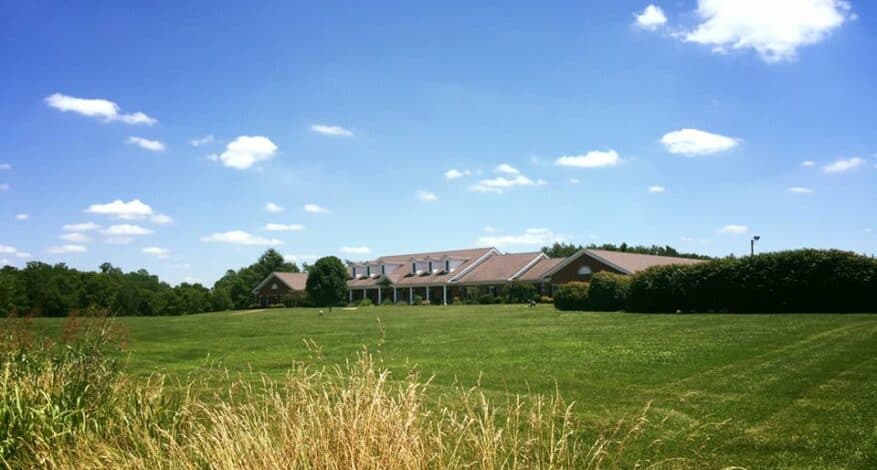Let’s Talk About Septic Systems
We never expected to type these five words on our blog. Let’s talk about septic systems.
Septic systems aren’t top of mind when you think about our mission. But the disposal of septic waste is critically important to any home or facility, especially an emergency shelter with 42 adult and child residents each night.
Our large 19,326-square-foot shelter facility requires two septic systems.
Waste from the shelter is pumped into two tanks, each connected to a separate leach bed. These leach beds are formed by hundreds of feet of underground perforated pipe meandering through our front lawn. Liquid waste seeps through holes in the pipes to be naturally filtered by the soil.
Something’s not right
The standard lifecycle for a septic system is about 25 to 30 years. Our systems were built during the facility’s original construction 25 years ago.
During the pandemic response, we noticed slow drainage from shelter sinks, showers, tubs, and toilets. The grass on the property’s front lawn felt a little mushy, even though it hadn’t rained for days. From time to time, when the weather was just right, a faint unpleasant smell would blow across the shelter’s front porch.
It was time to call in the professionals.
Inspection of shelter’s septic systems found our tanks in good condition, but an expedited need for replacing the septic system’s aged leach lines was identified. The cost to replace the leach lines was estimated to be more than $60,000.
One-time opportunity
Although our annual operating budget includes funds for emergency repairs at the shelter, we had not anticipated the need for such a large-scale project during the pandemic response.
Just weeks later, there was a possible solution.
The City of Lexington announced a call for proposals from the community’s nonprofit organizations for one-time capital investment grants to be funded by the American Rescue Plan Act (ARPA). We began to prepare our application in haste, learning more than we could’ve imagined about septic systems and leach fields.
It’s more interesting than one might think! Did you know good bacteria in septic tanks feast on solid waste, breaking them down through digestion into gases?
Award notification
Following the city’s review of 138 project proposals, we received notification of funding to support the full cost of our leach line replacement project.
We had to wait a few months for the weather and ground to warm after winter, but the project begins today! Crews are onsite to replace 1600 total feet of leach lines to better dispose of liquid and solid waste generated at our emergency shelter.
More than 20 social service agencies in Fayette County are making much needed facility renovations, improving accessibility to facilities for those with disabilities, and more with support from the city’s ARPA funds.








